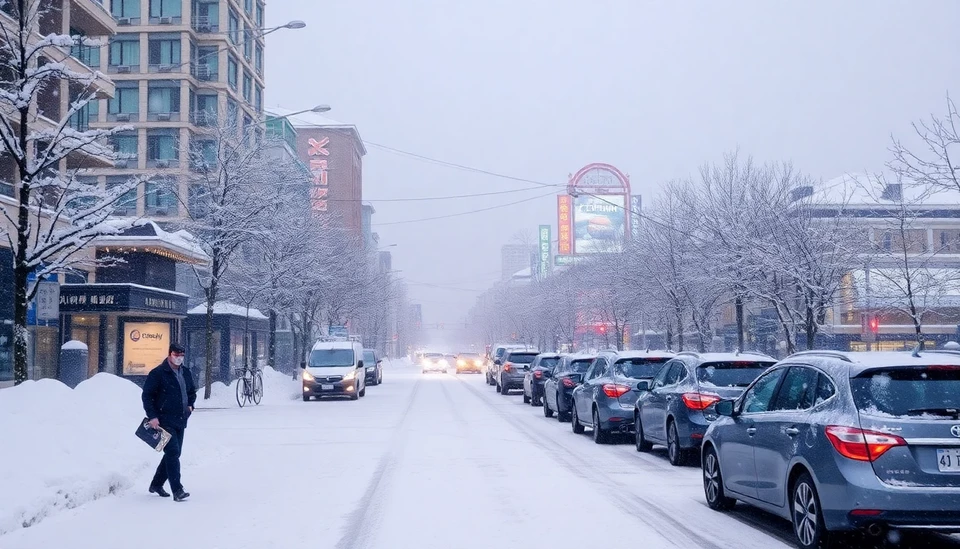
In an unprecedented turn of events, Seoul recently bore the brunt of the highest snowfall the city has seen in more than 100 years, leaving residents and officials grappling with extensive disruptions across the metropolitan area. The snowfall, which began early in the morning, blanketed the city in a thick layer of snow, severely affecting transportation systems, businesses, and everyday life.
The Korea Meteorological Administration (KMA) reported that up to 30 centimeters of snow fell in some areas by the end of the day. The last time such an intense snowstorm impacted Seoul was over a century ago, underscoring the severity of the weather conditions. The sudden and heavy accumulation of snow created chaos on the roads, leading to numerous snow-related accidents and rendering many vehicles immobile.
Major thoroughfares were clogged with traffic as cars struggled to navigate through the icy conditions. Public transportation services, including buses and subway lines, faced significant delays, causing frustration among commuters trying to reach their destinations. Many local businesses also had to shut down as employees were unable to make it to work safely, further exacerbating the city's economic challenges.
Emergency services worked tirelessly throughout the day to clear roads and assist those stranded as a result of the heavy snowfall. Despite their efforts, the scale of the storm overwhelmed many resources, leading to reports of delayed responses to calls for assistance. Authorities have urged residents to stay indoors unless absolutely necessary and to avoid any travel until conditions improve.
The Korean government is preparing to deploy additional resources to address the aftermath of this historic snowfall, including snow removal equipment and personnel to assist in clearing affected areas. Meteorologists are keeping a close watch on the situation, warning that further snowfall may be on the way in the coming days, which could exacerbate the current state of emergency.
This unusual weather event raises questions about the impacts of climate change and how urban centers like Seoul can better prepare for extreme weather occurrences in the future. As scientists continue to study the effects of global warming, it becomes increasingly vital for cities to enhance their infrastructure and emergency preparedness to mitigate the impact of natural disasters.
As citizens dig out from the snowdrifts and recover from the disruptions, community support and resilience will be essential in navigating the aftermath of this historic storm. Residents are encouraged to check on their neighbors, especially the elderly and those with mobility issues, to ensure everyone's safety and well-being during these challenging conditions.
The city looks ahead to a long recovery process as it deals with the fallout from this record-setting snowfall. Officials remain vigilant in their response, ready to adapt strategies as needed based on the evolving weather patterns.
As the winter months approach and weather systems become more unpredictable, awareness and preparedness will be key. The lessons learned from this extraordinary snowstorm will likely have lasting implications for city planning and emergency management strategies moving forward.
In the meantime, Seoul's residents are facing the challenge head-on, embodying the spirit of perseverance and hope even as they grapple with the extraordinary conditions that have upended daily life.
#SeoulSnowfall #RecordSnow #SevereWeather #Korea #ClimateChange #EmergencyResponse #CommunityResilience
Author: Peter Collins




